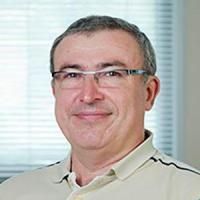New stochastic carcinogenesis model with covariates: an approach involving intracellular barrier mechanisms.
Date
2012-03
Journal Title
Journal ISSN
Volume Title
Repository Usage Stats
views
downloads
Citation Stats
Abstract
In this paper we present a new multiple-pathway stochastic model of carcinogenesis with potential of predicting individual incidence risks on the basis of biomedical measurements. The model incorporates the concept of intracellular barrier mechanisms in which cell malignization occurs due to an inefficient operation of barrier cell mechanisms, such as antioxidant defense, repair systems, and apoptosis. Mathematical formalism combines methodological innovations of mechanistic carcinogenesis models and stochastic process models widely used in studying biodemography of aging and longevity. An advantage of the modeling approach is in the natural combining of two types of measures expressed in terms of model parameters: age-specific hazard rate and means of barrier states. Results of simulation studies allow us to conclude that the model parameters can be estimated in joint analyses of epidemiological data and newly collected data on individual biomolecular measurements of barrier states. Respective experimental designs for such measurements are suggested and discussed. An analytical solution is obtained for the simplest design when only age-specific incidence rates are observed. Detailed comparison with TSCE model reveals advantages of the approach such as the possibility to describe decline in risk at advanced ages, possibilities to describe heterogeneous system of intermediate cells, and perspectives for individual prognoses of cancer risks. Application of the results to fit the SEER data on cancer risks demonstrates a strong predictive power of the model. Further generalizations of the model, opportunities to measure barrier systems, biomedical and mathematical aspects of the new model are discussed.
Type
Department
Description
Provenance
Citation
Permalink
Published Version (Please cite this version)
Publication Info
Akushevich, Igor, Galina Veremeyeva, Julia Kravchenko, Svetlana Ukraintseva, Konstantin Arbeev, Alexander V Akleyev and Anatoly I Yashin (2012). New stochastic carcinogenesis model with covariates: an approach involving intracellular barrier mechanisms. Math Biosci, 236(1). pp. 16–30. 10.1016/j.mbs.2011.12.002 Retrieved from https://hdl.handle.net/10161/14847.
This is constructed from limited available data and may be imprecise. To cite this article, please review & use the official citation provided by the journal.
Collections
Scholars@Duke

Igor Akushevich

Svetlana Ukraintseva
Dr. Ukraintseva studies causes of human aging and related decline in resilience, to identify genetic and other factors responsible for the increase in mortality risk with age eventually limiting longevity. She explores complex relationships, including trade-offs, between physiological aging-changes and risks of major diseases (with emphasis on Alzheimer’s and cancer), as well as survival, to find new genetic and other targets for anti-aging interventions and disease prevention. She also investigates possibilities of repurposing of existing vaccines and treatments for AD prevention and interventions into the aging. For this, Dr. Ukraintseva and her team use data from several large human studies containing rich genetic and phenotypic information (including longitudinal measurements) on thousands of individuals. Dr. Ukraintseva is a PI and Key Investigator on several NIH funded grants, and has more than 130 peer-reviewed publications, including in major journals such as Nature Reviews, Stroke, European Journal of Human Genetics, and some other.

Konstantin Arbeev
Konstantin G. Arbeev received the M.S. degree in Applied Mathematics from Moscow State University (branch in Ulyanovsk, Russia) in 1995 and the Ph.D. degree in Mathematics and Physics (specialization in Theoretical Foundations of Mathematical Modeling, Numerical Methods and Programming) from Ulyanovsk State University (Russia) in 1999. He was a post-doctoral fellow in Max Planck Institute for Demographic Research in Rostock (Germany) before moving to Duke University in 2004 to work as a Research Scientist and a Senior Research Scientist in the Department of Sociology and the Social Science Research Institute (SSRI). He is currently an Associate Research Professor in SSRI. Dr. Arbeev's major research interests are related to three interconnected fields of biodemography, biostatistics and genetic epidemiology as pertains to research on aging. The focus of his research is on discovering genetic and non-genetic factors that can affect the process of aging and determine longevity and healthy lifespan. He is interested in both methodological advances in this research area as well as their practical applications to analyses of large-scale longitudinal studies with phenotypic, genetic and, recently, genomic information. Dr. Arbeev authored and co-authored more than 150 peer-reviewed publications in these areas.

Anatoli I. Yashin
Unless otherwise indicated, scholarly articles published by Duke faculty members are made available here with a CC-BY-NC (Creative Commons Attribution Non-Commercial) license, as enabled by the Duke Open Access Policy. If you wish to use the materials in ways not already permitted under CC-BY-NC, please consult the copyright owner. Other materials are made available here through the author’s grant of a non-exclusive license to make their work openly accessible.
